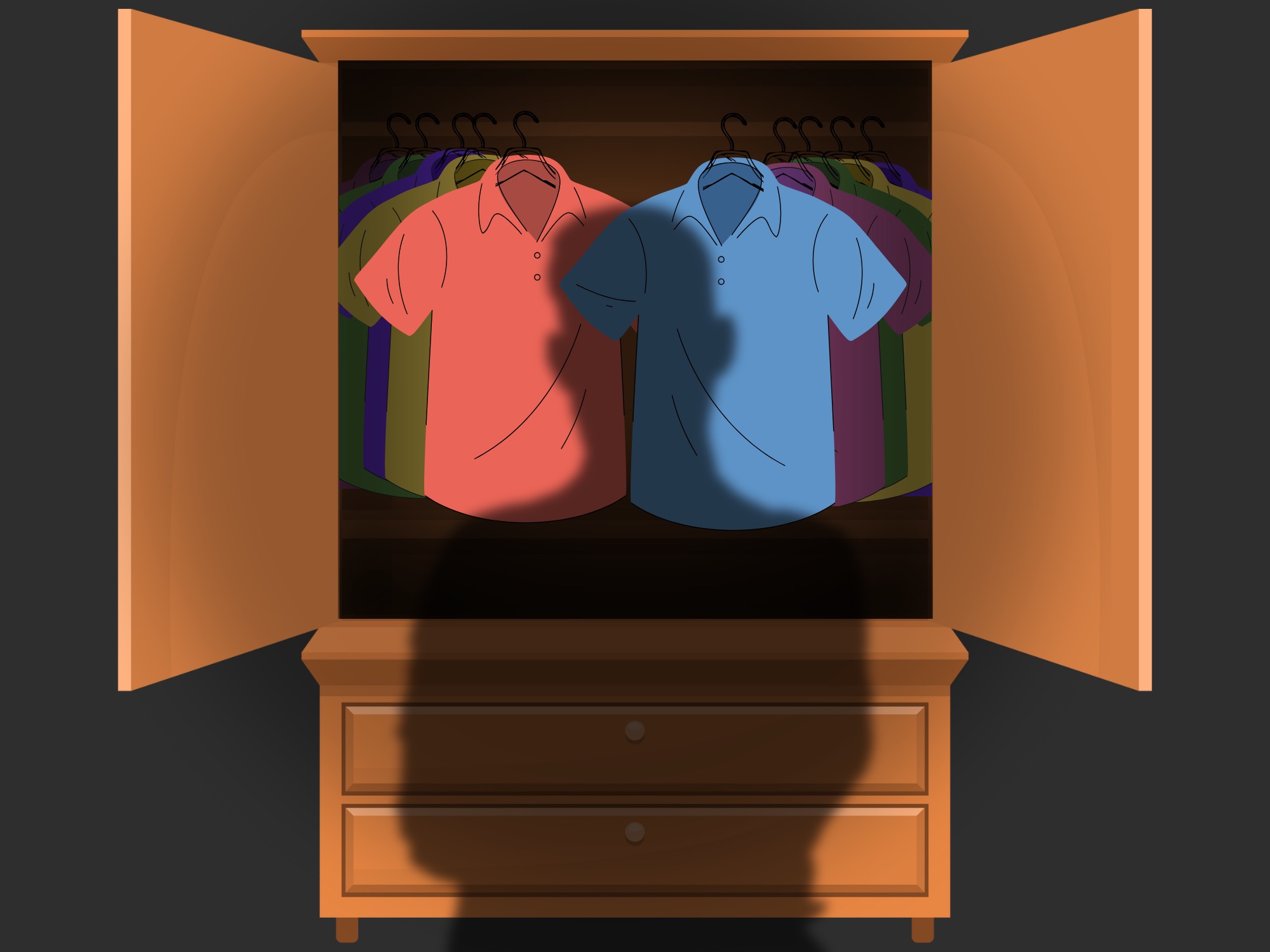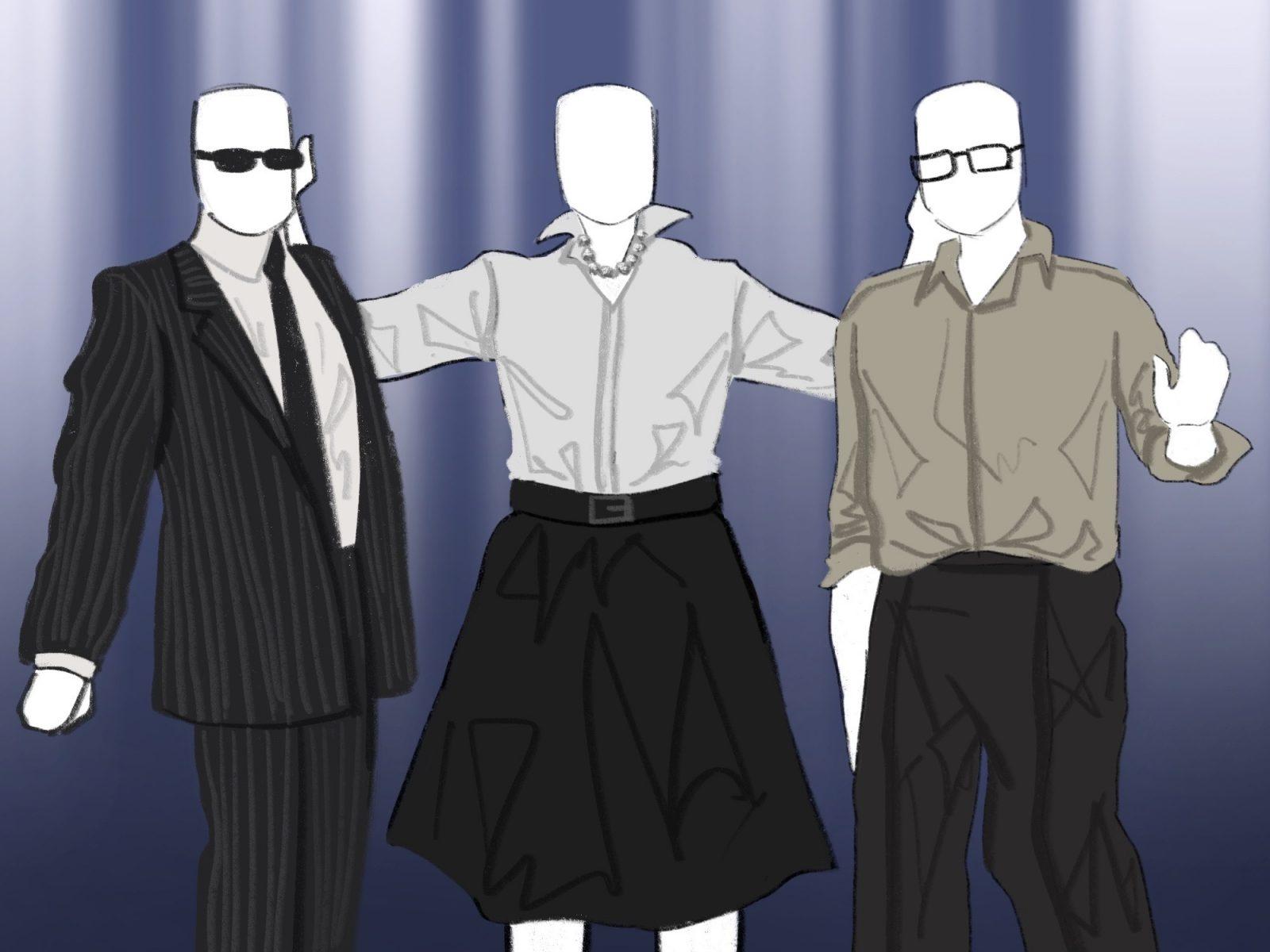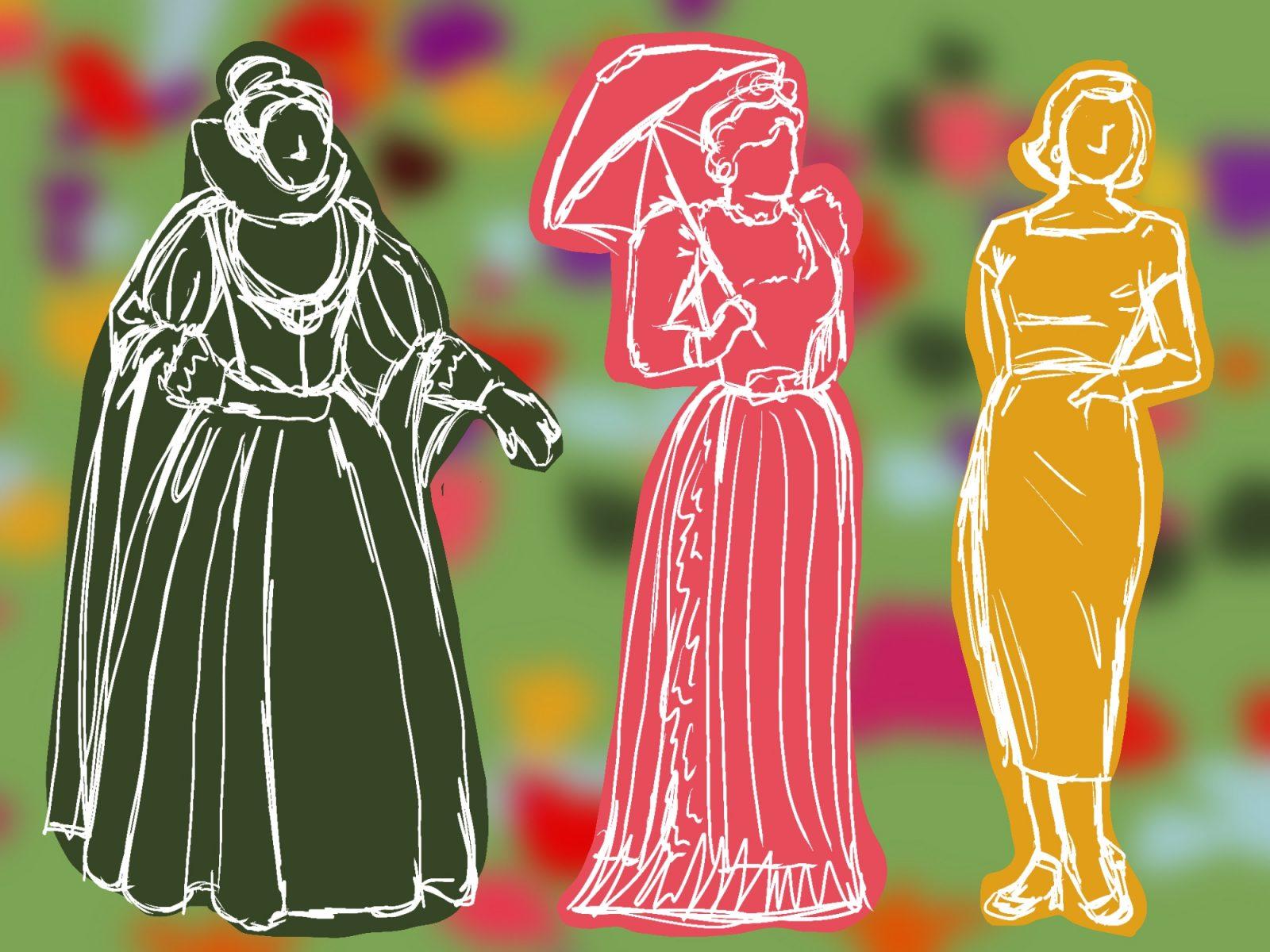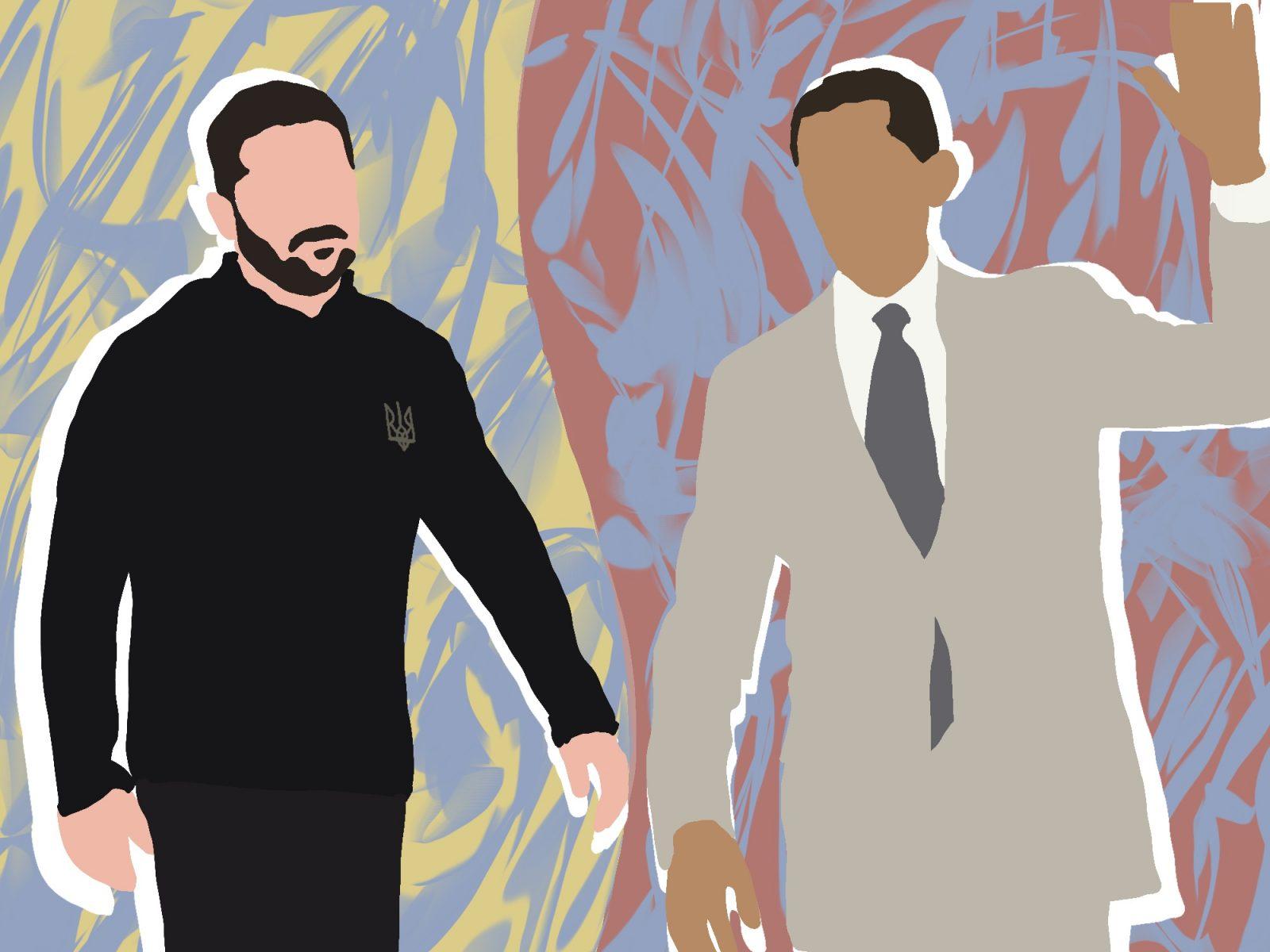I’d like to consider myself a lover of many things. I love exceptional art and captivating conversation, but I appreciate nothing more than a well-executed fashion statement.
Take Emily Ratajkowski’s “Feminist AF” T-shirt, for example. While the white tee and blue jeans combination is an off-duty model staple, the Jonathan Simkhai design was a bold way to emphasize her values without having to spell them out herself.
Fashion is a visual language. Wearing your political beliefs is a trend during election season. Gone are the days when political merch was limited to party pins and the iconic “I Voted” sticker.

One can credit the era of America’s first president, George Washington, for the start of political fashion. Brass buttons engraved with “Long Live the President” and his initials in cursive were sold during Washington’s inauguration, a pledge of support for a new era of American independence. Throughout history, the simple button evolved into hats, clothing and shoes reflecting the fashion trends of the time.
This year, “Make America Great Again” caps and camo-printed “Harris-Walz” trucker hats made an appearance. Pearls, Chuck Taylor sneakers and the color purple, were all essential to Kamala Harris’ uniform and entered the fashion scene.
With the election results now in, I think it’s essential to reflect on the past few months to see what fashion choices revealed about the mindset of the nation. In July, I had a friend visiting Rehoboth Beach, Delaware, roughly a week after the assassination attempt on Donald Trump. Within one week, shops on the boardwalk were overflowing with T-shirts, shorts and even sweat sets printed with the viral image of Trump, bloody-eared, with his fist in the air, accompanied by quotes such as “fight, fight, fight” and “never surrender!”
Ear bandages imitating the one Trump donned after his assassination attempt were even trending at the Republican National Convention less than a week later.
Meanwhile, many designs for Harris looked like they belonged in the merch section of a Charlie XCX concert. In July, the British singer-songwriter tweeted, “kamala IS brat,” to her X account, amassing more than 61 million views and 330,000 likes. From that moment on, Harris heavily catered towards the Gen-Z market, a choice that strongly dictated how she would be marketed as a candidate on social media platforms, specifically TikTok.
Harris memes like “big sister general” and “you think you just fell out of a coconut tree” were printed across neon green baby tees, fit for 2024’s “Brat” summer.
Of course, we all have the right to express ourselves freely through clothing, but eventually, a question arises: Has political merch gone too far? Are we losing the nuance and seriousness of politics by turning it into a product to be bought and sold?
Although fundamentally different, Trump’s and Harris’ merch reveal that both leaders have quite the cult following.
Considering these social implications, wearing the MAGA logo goes further than endorsing Trump — it represents a full-fledged identity and a willingness to stand by a set of controversial ideals, like his comments about Haitian immigrants and his plan to leave the Paris Agreement. In this way, MAGA merch has evolved into a form of resistance for some — a visible statement of allegiance to Trump, regardless of the backlash it might invite.
On the other end of the spectrum, Harris’ merch tended to be more playful. But even this approach raises questions about the image it projects. For Harris — a woman of color navigating the unforgiving arena of American politics — leaning into trendy, youth-oriented merch seemingly worked against her as she tried to establish herself as a serious contender.
Politicians shouldn’t have to sensationalize themselves through merchandise to capture the attention of the American public? In an era where politics and consumerism are more intertwined than ever, perhaps less is more — and wearing your political beliefs is simply not as important as fighting for them.


























































































































Kim • Nov 13, 2024 at 2:44 pm
Well stated Anjola! Thank you for sharing. Definitely an eye opener.
Daniel • Nov 13, 2024 at 10:30 am
Loved this